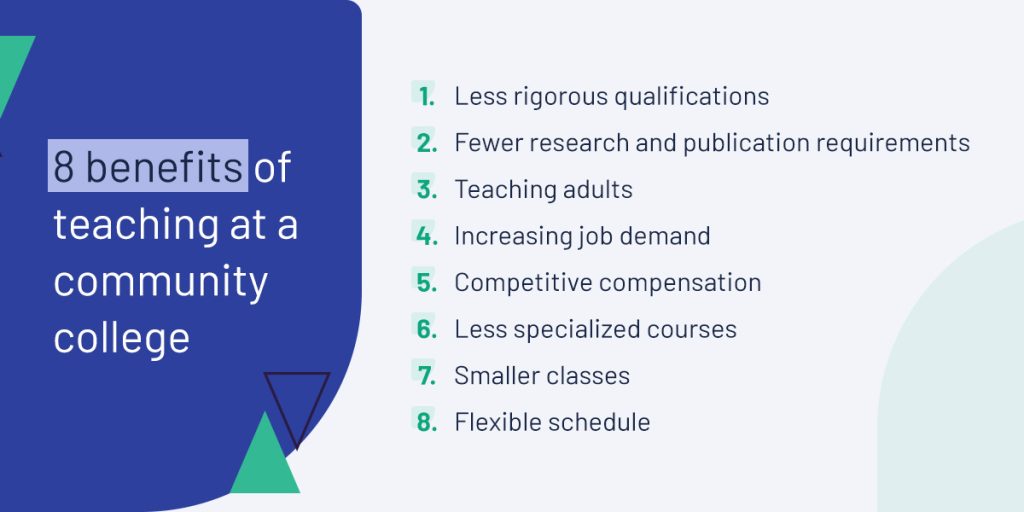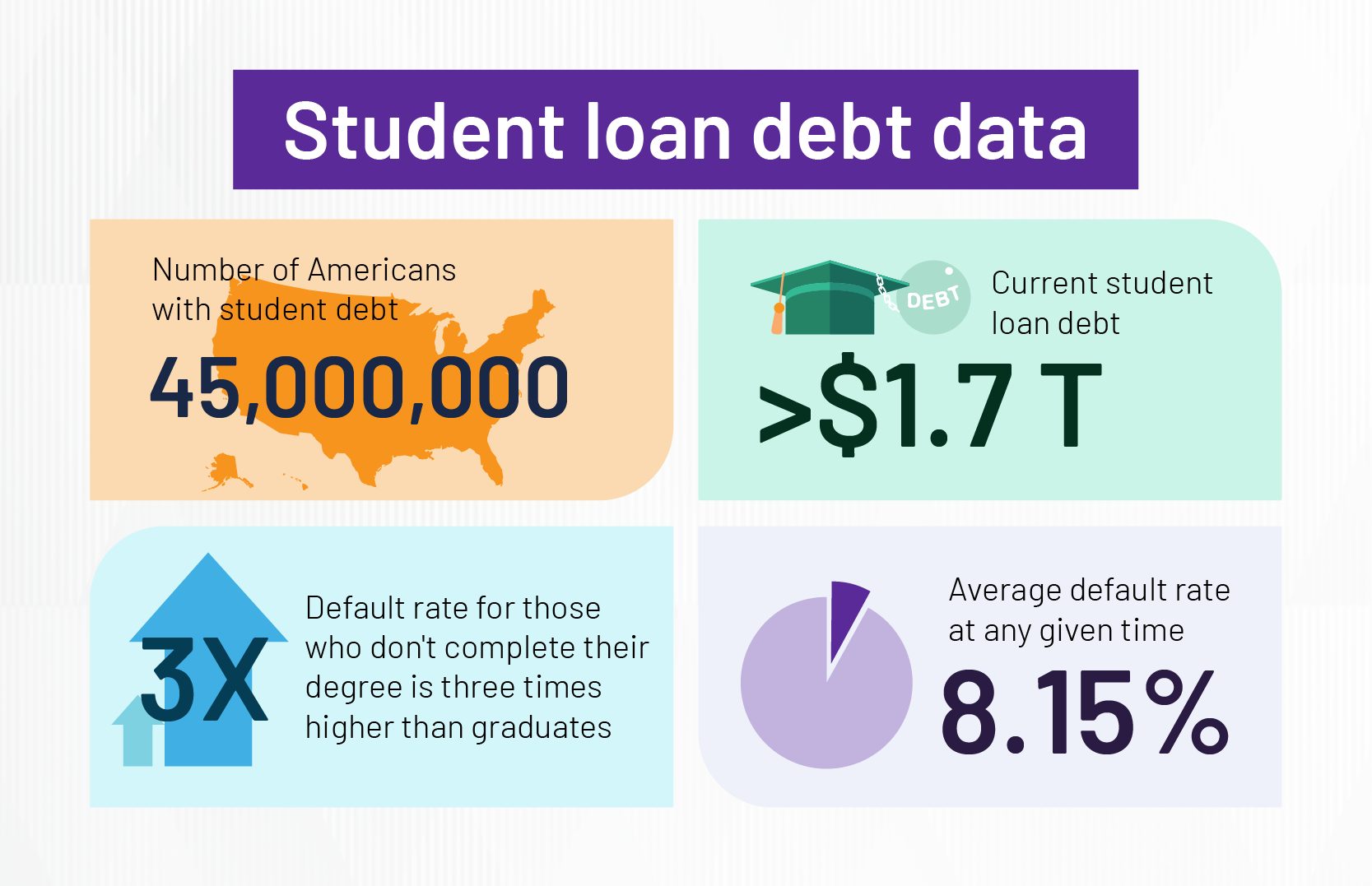
Teaching at a community college can be incredibly rewarding as you need fewer qualifications to start and get to teach a broad range of students, from high school graduates to seasoned professionals. If you’re interested in following this career path, understanding its perks and what it takes to land your first job offer is beneficial.
Learn more about becoming a community college teacher and the benefits of this career path.
Understanding the shift to community college
Higher education has faced declining enrollment for a few years now, but the numbers are slowly starting to rise. In 2024, enrollment for all institutions increased by 4.5 percent, which is a positive shift for the industry. However, students continue to doubt the value of 4-year a degree and the debt needed to pay tuition.
Consequently, more undergraduate students are enrolling in community colleges to earn shorter certificates and associate degrees that cost less. Enrollment in undergraduate certificate programs rose by 9.9 percent in 2024, primarily at public 2-year institutions. In comparison, 4-year institutions only saw a 2.9 percent rise in enrollment for bachelor’s degrees.
Now is the perfect time to consider becoming a community college teacher, as institutions may start employing more people to meet the demand.
Requirements for teaching at community college
How hard is it to become a community college professor? Each institution may have a different set of requirements, but there are certain skills and experiences that you’ll need in any position — and those that will set you apart.
To become a community college professor, you must possess an advanced degree, such as a master’s or doctorate. You will also typically need at least three years of academic experience or work experience in your field of expertise. Having relevant teachers, mentors, or colleagues speak on your behalf can help attest to your qualifications.
Additionally, community college professors can benefit from having soft skills like:
- Being inquisitive, curious, and creative.
- Presenting themselves as easy to talk to and sociable.
- Showing passion in the field and connecting with students.
- Being resourceful, helpful, and organized.
- Devoting efforts to lifelong learning.
- Possessing excellent written and oral communication.
- Having thoughtful interactions with students and staff of diverse backgrounds.
- Being service-oriented.
- Having attention to detail.
- Exhibiting a sense of humor and being able to laugh.
What could Watermark do for your institution?
8 benefits of teaching at a community college

If you’re interested in educating the world’s upcoming leaders, there’s no better place to do it than in higher education. Consider the following advantages of a career as a community college professor:
1. Less rigorous qualifications
One of the greatest benefits of becoming a community college professor is achieving a tenure-track, full-time job with full benefits while only needing a master’s degree. As you continue teaching and progressing in your field, you can work toward tenure — a form of job protection for higher education faculty. Tenure also enables you to take a sabbatical, enjoy lengthy holiday and summer breaks, and gain more control over how and what you teach in the classroom.
Essentially, you can take control of your professional development and where you want to go in your career. You can engage in exciting research, meet with like-minded individuals, and encourage young minds to drive change.
2. Fewer research and publication requirements
If you want to focus solely on teaching, becoming a community college professor is an excellent career choice. Community colleges generally emphasize publishing research less than other higher education institutions. Some instructors still publish their work, but most tenure requirements at community colleges focus more on teaching quality, service, and professional development.
Less pressure to research and publish can alleviate some of the stress of working in higher education. However, keep in mind that this could limit conference opportunities. While some people may enjoy this aspect, others may want to attend these events to gain more knowledge and further their development.
3. Teaching adults
A major benefit of working at a community college is teaching adult students. Along with recent high school graduates, you may find mothers, fathers, veterans, retired people, and full-time workers. This diversity enriches the student experience, as they can learn from each other and exchange ideas.
Some adult students will also already have knowledge or experience in the world, so you can actively shape their education while gaining new perspectives. Additionally, adult students are committing to their education and choosing to walk down this path, meaning they’re more likely to be engaged in the classroom and excited to learn.
4. Increasing job demand
More students are choosing to attend community colleges, raising the job demand for community college instructors. The U.S. Bureau of Labor Statistics predicts that the demand for postsecondary teachers — including community college professors — will increase by 8 percent between 2023 and 2033. The average rate across all occupations is only 4 percent, highlighting just how fast the demand is growing.
With increased demand, you’ll likely have more control over where you work because many locations are looking to hire. It also means you can expect some job security even if you don’t remain in the first institution you choose.
5. Competitive compensation
On top of comprehensive professional and personal benefits like health care, extended breaks, and retirement savings, you can get a competitive salary teaching at a community college. The average salary for all postsecondary teachers is $84,380 per year in 2023, and full-time college professors earn an average of $67,352.
Adjunct instructors, who are contracted to teach specific classes, make $2,700 on average per course. As an adjunct instructor, you’re free to take on as many courses as you like, and you can often work at multiple institutions. You can make much more than the starting salary once you gain experience, achieve tenure, and contribute to your field.
6. Less specialized courses
Community colleges usually offer students certificates and two-year associate degrees, which are less specialized than programs found in four-year institutions. The focus on basic, career-centered education means needing to meet fewer requirements to teach and being able to shape the curriculum in a way that works for you and your students. You may also have more flexibility in the instruction methods you choose. You can evaluate what strategies work best with your students and modify techniques to be more effective.
7. Smaller classes
Compared to other higher education institutions, community colleges have relatively small campuses and class sizes. A small class size can be a big benefit of teaching at community colleges. With fewer people in the course, you will likely see more in-class participation. Smaller classes also allow you to interact with each student and make stronger connections with them. Additionally, you may find it easier to know when to dive deeper into course materials or provide more creative challenges.
8. Flexible schedule
If work-life balance is important to you, teaching at a community college may be the perfect fit. Many community colleges offer students more flexible schedule options like part-time, evening, and online classes. These options make it easier for students to attend classes while attending to other responsibilities.
As a professor, you may also benefit from this flexible schedule. A flexible schedule means you might have more time between classes to work on things other than teaching. You may also have more opportunities to work from home through online classes.
Succeed as a community college professor with Watermark
Watermark offers support for everyone on campus. From students to professors and administrative staff, our unique solutions increase engagement across the board and help institutions streamline efforts, promote transparency, and drive ongoing evolution.
As a community college instructor, you can succeed by delivering quality education to your students and using software that maximizes your efforts and reduces your workload. Watermark Student Success & Engagement makes it easy to spend more time connecting with students and less time completing repetitive tasks.
Request a demo of our solutions and start driving change at your institution this year.
















































































































































































































































































































































































































